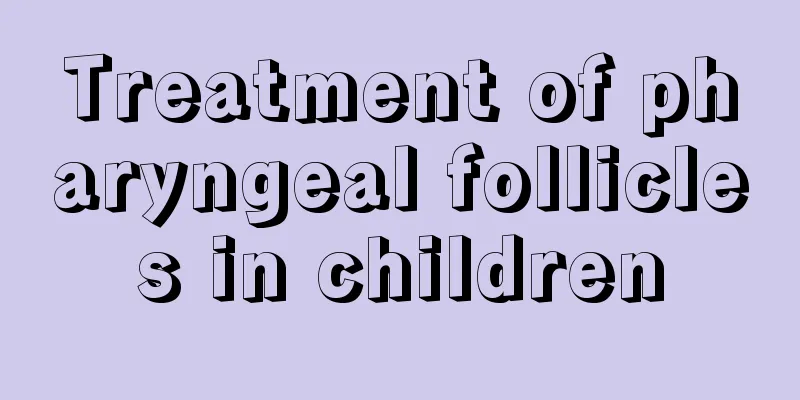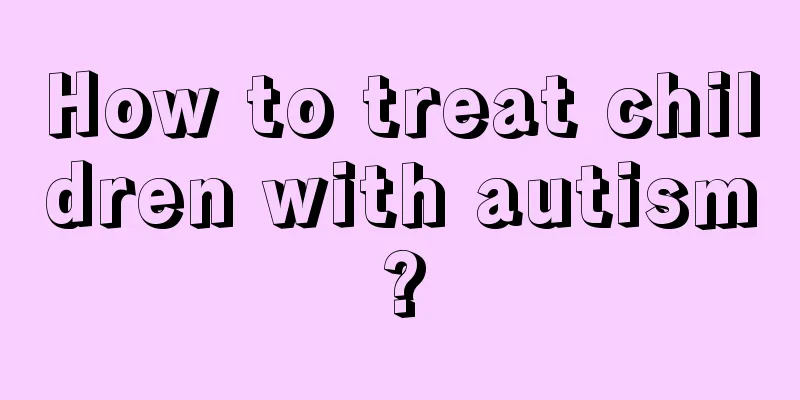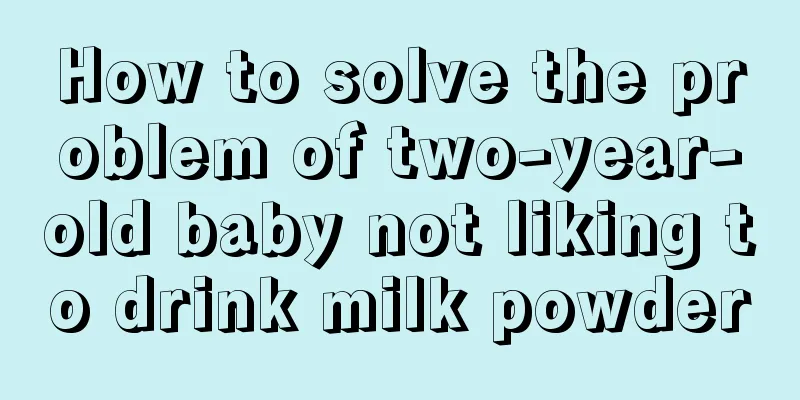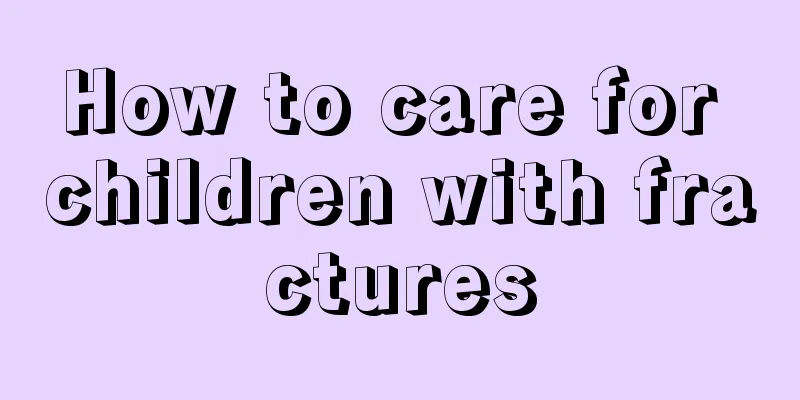Neonatal suction negative pressure
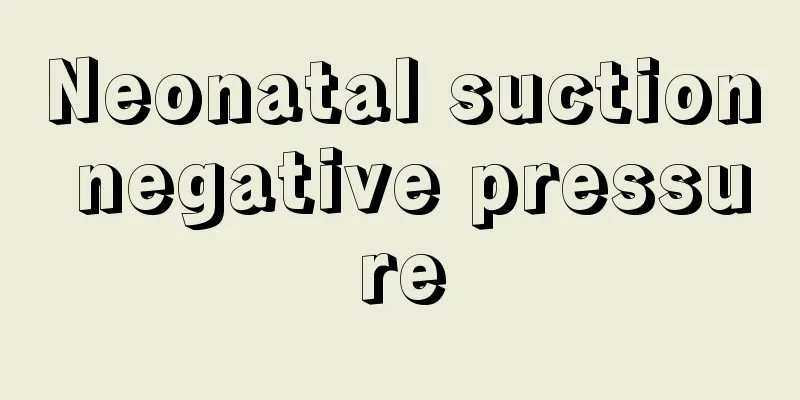
|
Although many mothers are particularly attentive and careful when taking care of their newborn babies, some small accidents may happen to babies. Sometimes mothers will find a whirring sound in the baby's throat. There are many reasons for this. When a newborn baby has phlegm in the throat, if the parents cannot handle it well, it is best to take the baby to the hospital for treatment. What is the negative pressure of suction for infants? The negative pressure during suctioning of children should not exceed 300 mmHg, which is equivalent to 40 kilopascals. If the child has choking and coughing and cannot sputum out, you can choose to use suction operation, with each suction time not exceeding 15 seconds. Suctioning is a commonly used nursing operation technique in clinical practice. The purpose of suctioning is to suck out respiratory secretions, keep the respiratory tract open, and maintain effective ventilation. The commonly used suction negative pressure for suctioning is 300-400 mmHg (40.0-53.3 kPa) for adults and <300 mmHg (40.0 kPa) for children. What to do if your newborn has phlegm 1. Pat the back When patting the back, parents can let the baby lie on your thighs with the baby in an arched back position, and use your hollow palms to pat from bottom to top and from outside to inside. The force of patting the back should not be too strong. Pat for at least 3-5 minutes each time, and pat 2-3 times a day. The back-patting method can not only loosen the phlegm in the child's lungs and bronchi, drain it into the trachea and discharge it, but also promote blood circulation in the heart and lungs, which is beneficial to the absorption of bronchial inflammation and enables early recovery from the disease. 2. Keep warm Because infants and young children have weaker immunity, they are more likely to catch colds and chills than adults, which can induce respiratory diseases such as tracheitis and bronchitis. Therefore, parents should take good warming measures and not let the baby catch cold. 3. Drinking water method For children who cough, the insensible water loss through the respiratory tract will be very high, and the airway will be relatively dehydrated, which can aggravate respiratory inflammation and the viscosity of secretions, making them difficult to cough out. Let the child drink more water, especially cold boiled water at about 23°C, which has a good moisturizing and physical therapeutic effect on the throat. Drinking more cold boiled water can dilute the viscous secretions, making them easier to cough out, which is beneficial for relieving cough and expectoration, and eliminating local inflammation. At the same time, cold boiled water can improve blood circulation, so that waste or toxins produced by the body's metabolism can be quickly excreted from the urine, thereby reducing its irritation to the respiratory tract. 4. Indoor ventilation To keep the air in the room fresh, open the windows regularly for ventilation. It is best to keep the indoor temperature at 18-22 degrees, but be careful not to let the cold wind blow directly on the children. The relative humidity should be maintained at 60%-65%. You can use a wet cloth to mop the floor to increase the humidity in the room. This is beneficial to keeping the respiratory mucosa moist and the cilia on the mucosal surface moving, which helps with the discharge of sputum. 5. Steam method Hold your baby in a steam-filled bathroom for 5 minutes. The humid air can thin the sputum and facilitate coughing. It can also reduce congestion and edema of the trachea and bronchial mucosa and reduce coughing. 6. Drug Law Children should be very cautious when taking medication. They should not take cough suppressants casually to avoid suppressing the cough center and making it difficult to expectorate. Children can take medication under the guidance of a doctor. Parents can also make Sichuan Fritillary Bulbs stewed with pears at home and let their children eat the pears and drink the juice, which is also helpful for reducing phlegm and relieving cough. |
<<: Children's over-flowering is a symptom
>>: The reason for high blood test in newborns
Recommend
What should I do if my two-year-old baby has poor digestion?
Many children usually don’t like to eat with big ...
What should I do if my baby doesn't poop for three or four days?
Nowadays, every family is well off and has only o...
Baby falls on head, causing brain damage
Babies are the apple of their parents’ eyes and t...
What are the symptoms of cow's milk protein allergy in newborns?
Many people suffer from allergies in life, and th...
Newborn babies like to sleep on their side
Many parents think that children should follow th...
Treatment of thyroid deficiency in infants
Insufficient thyroid secretion in infants has a g...
Reasons why babies sleep restlessly at night
Many parents will find that their newborn babies ...
Is it okay for children to eat walnuts?
It is perfect for children to eat walnuts, becaus...
3 month old baby sleep
We all know that when babies grow to three months...
Prevention and treatment of newborn baby who has not had bowel movement for four days
When the weather is hot, if you don’t drink more ...
Newborns fart a lot but don't poop
If a newborn baby farts a lot and has no bowel mo...
Can baby's cerebral hemorrhage be cured?
For middle-aged and elderly people, cerebral hemo...
Potential advantages of introverted children
Many parents worry that their children are introv...
What should we pay attention to when children have neurotic convulsions?
Children's neurotic convulsions are a relativ...
What medicine should my child take if he has diarrhea and vomiting?
Children's vomiting and diarrhea are mostly c...

